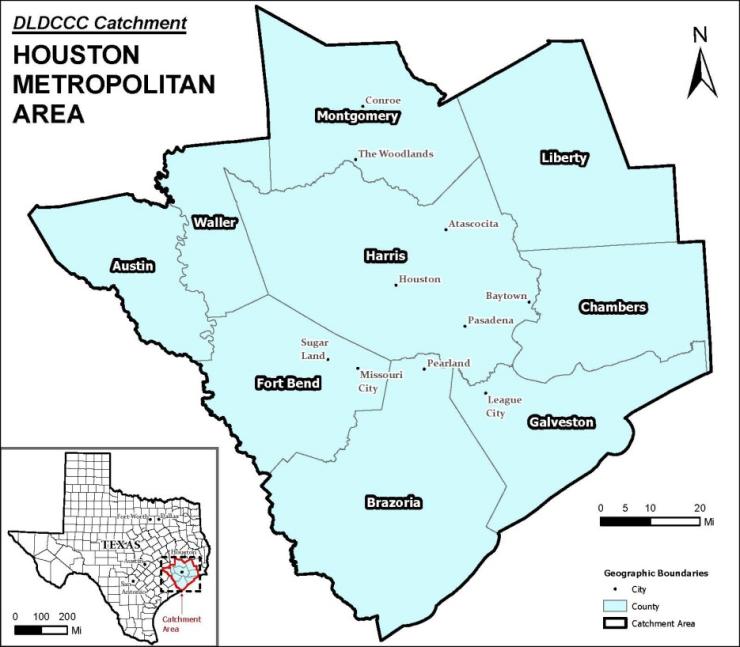
Since 2007, the Dan L Duncan Comprehensive Cancer Center’s Community Outreach and Engagement (COE), in collaboration with the Office of Outreach and Health Disparities (OOHD), has worked to ensure that all communities within the catchment area (CA) benefit from innovative cancer outreach, education, screening, and prevention. To achieve this goal, COE operates under four primary themes: (1) community outreach and engagement; (2) in-reach and support of CA-relevant and community-catalyzed research; (3) continuous CA monitoring and engagement; and (4) dissemination and promotion of evidence-based interventions and research findings.

COE bridges the gap between the community and academia, catalyzing community-supported cancer awareness, prevention, research, and treatment advances. Together, we have focused on translating research into practice through outreach, screening, education, community-engaged research, and policy development. These efforts prioritize medically underserved populations within our catchment area, encompassing Harris County and eight surrounding counties (Figure 1), including under and uninsured individuals, racial and ethnic minorities at higher risk for cancer morbidity and mortality, and rural or geographically distant populations.

Greetings!
My name is Dr. Rayne Rouce, and I have the honor to serve as the Associate Director of COE within the DLDCCC. I am a proud Houstonian, born and raised within the DLDCCC catchment area. In fact, I grew up right around the corner from Baylor College of Medicine in Houston’s Historic Third Ward, attended BCM’s DeBakey High School for Health Professions, participated in BCM’s prestigious summer research programs, and returned to BCM for my pediatric hematology oncology training in 2011, where I am now an Associate Professor of Pediatrics. You can say I “grew up Baylor.”
As a pediatric oncologist and clinician scientist, my passions are three-fold: (1) I strive to identify less-toxic, more targeted therapies for children, adolescents, and young adults with difficult-to-treat cancers and to ensure that ALL patients who stand to benefit from novel therapies have access to them; (2) I aim to enhance cancer health equity through research, education, and outreach, creating bridges rather than barriers between cancer researchers and the communities we serve; and (3) I am committed to ensuring the next generation of cancer clinicians, researchers, and team members are equipped to meet the growing needs of the patients and communities we serve.
I am beyond honored to lead an outstanding, talented, and committed team of individuals dedicated to addressing catchment-area identified cancer priorities, whether related to prevention, treatment, or education. I also serve as Associate Director of Community Outreach within BCM’s Community Engagement and Health Equity Office, which allows our team to ensure our community members and partners get their entire healthcare needs met, cancer and beyond!
Our Work

To accomplish our activities, we work in close collaboration with the DLDCCC Research Programs, Disease Working Groups, our community partners, and our Community & Patient/Caregiver Advisory Boards:
- We monitor the cancer burden and risk factors in our catchment area.
- We engage our catchment area populations in cancer prevention, control, survivorship outreach, education, and research to reduce cancer burden and address disparities.
- We promote the integration of evidence-based interventions and findings from our research programs in our catchment area, regionally, nationally, and globally through outreach, collaboration, and policy.
- We utilize our Theater Outreach Program to collaborate with communities and organizations, showcasing skits focused on cancer prevention, screening, and treatment.
- We conduct outreach and in-reach education through our different programs.
- We collaborate with the Cancer Research, Training and Education Core and Inclusive Leadership and Culture Team to support the DLDCCC’s mission of providing patient-centered care, performing transdisciplinary research, training the next generation of leaders to make groundbreaking discoveries, developing novel prevention and treatment strategies, and reducing cancer inequities.








